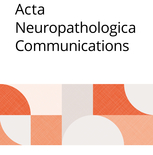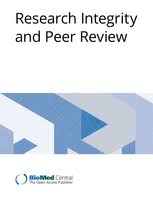
A study spanning dozens of years, four deceased authors and a retraction for duplicate publication. Sounds like a recipe for an episode of that new show about medical detectives (not epidemiologists; detectives with guns).
We’d like to be able to explain, but, well, we can’t. What we do know is that the authors of a 2019 article about the role of aluminum in neurologic disease have retracted their paper because it’s a duplicate of an article some of them had published in 2018. But that’s as clear as things get.
Here’s the retraction notice, which, like any good mystery, is full of question marks:
Continue reading Four dead authors, a duplicate publication and questions: Solve this one!






 Are there a limited number of ways to describe the the background and methods of an experiment? Once something has been written well, and vetted by editors, is it a waste of time to rewrite it ? And if text has been reused, how should that be indicated — if at all?
Are there a limited number of ways to describe the the background and methods of an experiment? Once something has been written well, and vetted by editors, is it a waste of time to rewrite it ? And if text has been reused, how should that be indicated — if at all? In the fall of 2015, out-of-work stem cell biologist Mavi Camarasa decided she had waited long enough. It had been three years since she and a colleague were, best they could tell, the first to successfully correct the most common cystic fibrosis mutation in stem cells derived from a patient.
In the fall of 2015, out-of-work stem cell biologist Mavi Camarasa decided she had waited long enough. It had been three years since she and a colleague were, best they could tell, the first to successfully correct the most common cystic fibrosis mutation in stem cells derived from a patient.